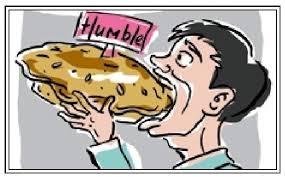Results: Sheila's Brush Is Going To Sweep You Off Your Feet
Published on 03/23/2019
QUESTIONS
GO to COMMENTS
Comments
1.
1.
For generations, people in Newfoundland and Labrador have had a particular name for a storm that comes on the heels of St. Patrick's Day. Sheila's Brush is an idiom used in those parts and it refers to the last big storm of the winter season, a storm that occurs around St. Patrick's Day. The term comes from an Irish legend which says that Sheila was the saint's wife (or sister or mother) and that the snow is a result of her sweeping away the old season. According to The Dictionary of Newfoundland and Labrador, Sheila's Brush usually follows a spell of fairly good weather. If the storm happens after St. Patrick's Day, a fine-weather spring is on its way. If it happens before St. Patrick's Day? The name of the storm becomes "Patrick and Sheila" and a bad-weather spring will ensue. Have you ever heard this saying before?

Never
87%
1995 votes
Yes
9%
210 votes
Of course! I am from Newfoundland and Labrador
4%
92 votes
2.
2.
Some better known idioms have interesting roots, which over time have been forgotten. We may use the expression without knowing the origin, and it is fun to go back and see where they originated from. Did you know the origins of any of these popular idioms?

Let the cat out of the bag -- Meaning: Divulge a secret. Origin: First recorded in the 16th century, this phrase stems from shifty farmers at markets who committed fraud by substituting a cat for a piglet in a bag. If someone let the cat out of the bag, the deceit was uncovered.
34%
777 votes
Steal ones thunder -- Meaning: To use someone else's ideas or inventions to your own advantage. Origin: The 18th-century playwright, John Dennis, claimed to have invented a device created the sound of thunder for his theatre production Appius and Virginia in London,1704. When his method was copied by rivals for the production of Macbeth, Dennis complained that they had 'stolen his thunder'
25%
585 votes
Eat humble pie -- Meaning: To admit you were wrong or apologize. Origin: In the 14th century during a post-hunt feast, the lord of the manor would eat the finest cuts of meat. The numbles was the name given to the heart, liver, and entrails of animals. By the 15th century this was shortened to 'umbles. It was common practice for people of lower stature to be humiliated when served the 'umbles baked into a pie. Thus, comes the term, 'to eat humble pie'.
27%
618 votes
The writing is on the wall -- Meaning: A clear sign that something unpleasant is going to happen. Origin: This phrase can be traced back to the Bible. In the Book of Daniel, God punishes King Belshazzar for indulging in a drunken revelry and degrading sacred temple vessels by using them as wine goblets. God sends this hand to write the words 'mene mene tekel upharsin' on the palace wall, which foretell Belshazzar's downfall. Unable to interpret the message, Belshazzar's sends for Daniel to interpret it. Belshazzar couldn't see the obvious warning that was apparent to others because he was so engrossed in his sinful behaviour.
34%
777 votes
None
53%
1207 votes
3.
3.
How about this next set. Did you know any of these origins?

Meet a deadline -- Meaning: To finish something in time. Origin: This phrase has sinister origins, first appearing during the American Civil War (1861-1865). A line was drawn 20 feet from the inside wall of the stockade where Federal prisoners of war were kept. This line set the boundaries for the prisoners and was known as a deadline because any prisoner who attempted to cross it was shot.
26%
593 votes
Straight from the horse's mouth -- Meaning: From the highest authority or trusted source Origin: This expression comes from punters in horse racing. Tips on which horse is likely to win are much sought after and circulate amongst punters. But the most trusted authorities are those from the inner circle of the horse, such as stable lads and trainers. The notional 'from the horse's mouth' is indicates one step even better than even the inner circle, that is, the horse itself
32%
735 votes
Break the ice -- Meaning: To end conflict or initiate friendship. Origin: This phrase originates from the 1580s, referring to the carving of ice to create passages for ships on trade routes. Oftentimes, the ships would get stuck in the ice during the winter. The receiving country would send small ships to 'break the ice' in order to make way for the trade ships.
31%
714 votes
Butter someone up -- Meaning: To praise or flatter someone excessively. Origin: In ancient India, is was custom to throw butterballs of ghee (clarified butter commonly used in Indian cooking) at the statues of the gods to seek favour and forgiveness. Similarly, a Tibetan tradition dating back to the Tang Dynasty (618–907) involves the creating sculptures from butter for the New Year with the belief that such offerings would bring peace and happiness during the full lunar year.
26%
600 votes
None
57%
1309 votes
COMMENTS


